 Whether you’ve recently bought a holiday home or survived your 30th season, it’s equally important to have the right insurance. As holiday home insurance specialists we answer questions from cottage owners on a daily basis. We’ve pulled together six of the most frequently asked holiday home insurance questions to give you a quick insight into the cover you potentially need.
Whether you’ve recently bought a holiday home or survived your 30th season, it’s equally important to have the right insurance. As holiday home insurance specialists we answer questions from cottage owners on a daily basis. We’ve pulled together six of the most frequently asked holiday home insurance questions to give you a quick insight into the cover you potentially need.
We’d like to use our cottage for our own holidays, and for friends and family. Would this be covered under a holiday home insurance policy?
Your holiday home needs to be available to paying guests for the majority of time throughout the year (the amount of time may depend on your individual policy). What this means is that you, or your family and friends, will be fine to use your cottage as long as it remains available to paying guests for the required period in any given year.
If something goes wrong, does the Holiday Home Insurance policy cover loss of rental income?
Insurance is there to help you through tough times, and we know that if something were to happen to your holiday home you not only face the potential bill to fix the issue, but also the cost of the rental income you would have otherwise gained whilst you wait for it to be repaired.
For this reason, our own policy automatically covers cottage owners for up to two years’ loss of rental income up to a sum of £75,000 should your property become unavailable as the result of an insured event such as storm damage or fire. Does your holiday home have an annual gross rental income in excess of £37500 (£75000 over two years)? We can provide additional cover on request. We’re here to get you back on your feet and we feel this is a great part of the cover we’re able to offer cottage owners.
What happens if a guest accidentally breaks something, or even steals items from our cottage?
It’s an old cliché, but accidents do happen. If you have hundreds of guests enjoying your holiday home each year, there is a small chance that some items in your cottage may get damaged. The good news is that this would be covered under the accidental damage section of your policy, subject to an excess.
Cover for theft by guests is also automatically included, although we of course hope you won’t need it!
I employ a cleaner and a few others on a part time basis; would our holiday home insurance policy cover us for this?
If you employ staff, even if on a part time basis, it is a legal requirement to have Employers Liability insurance. This is covered under our own holiday home policy as standard. You will be issued a certificate upon taking your insurance out. Remember that you need to retain this with your records.
Do I have to regularly inspect the holiday home?
As part of our specialist insurance cover you will need to inspect the property on a regular basis. Regular inspections are also good practise from a customer service perspective. The policy includes the condition that:
- whenever your holiday home is left unoccupied, you will arrange that the premises are inspected at least every 14 days.
This inspection can be carried out by you, or by an authorised person responsible to you. It ensures your cottage is kept in tip top condition for those happy guests.
My holiday let is an annexe of my main property, can I cover it?
You certainly can, as long as any adjoining door between your home and holiday letting annexe is kept locked. The holiday let insurance needs to be kept separate. In situations such as this we would also look to provide home insurance for your main residence.
Remember that this article only gives a brief indication of some of the cover involved in insuring your holiday home. For further advice please contact us to ensure you have the cover your cottage really needs.
Boshers offer specialist holiday home insurance to owners across the UK. If you have any more holiday home insurance questions please give us a call on 01237 429444.
For further information on UK holiday home insurance visit the website page most relevant to you:


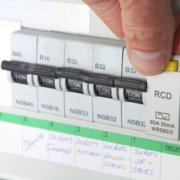
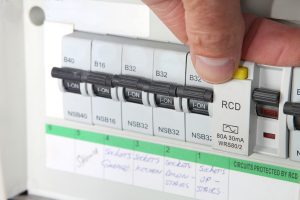 There are some items in modern life we just couldn’t do without, whether in the home or whilst on holiday; kettles, coffee machines, toasters, microwaves, TV’s, Hi-Fi’s and mobile devices. These all play a central part of our days, as they will be for those visiting your
There are some items in modern life we just couldn’t do without, whether in the home or whilst on holiday; kettles, coffee machines, toasters, microwaves, TV’s, Hi-Fi’s and mobile devices. These all play a central part of our days, as they will be for those visiting your 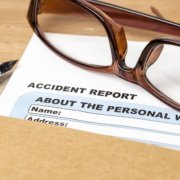
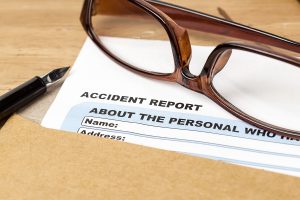 Accidents happen, and whilst
Accidents happen, and whilst 
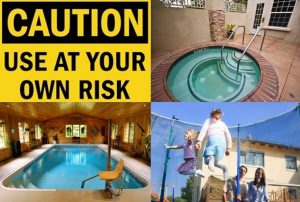 We’ve all seen them in everyday life; ‘Park here at your own risk’, ‘Playing in this area is at your own risk’. Disclaimer notices have become an increasingly common sight for most of us. Therefore it may surprise you to find that they don’t absolve the owner from blame should something go wrong. This is equally true for your
We’ve all seen them in everyday life; ‘Park here at your own risk’, ‘Playing in this area is at your own risk’. Disclaimer notices have become an increasingly common sight for most of us. Therefore it may surprise you to find that they don’t absolve the owner from blame should something go wrong. This is equally true for your 
 When you’re renewing your holiday let property insurance there are a few points you need to bear in mind. As you’re aware, a holiday let is very different to your average home, so having
When you’re renewing your holiday let property insurance there are a few points you need to bear in mind. As you’re aware, a holiday let is very different to your average home, so having 
 For many holiday homeowners across the UK 2016 was a great year. For some it may have even been record breaking. As we approach the new year with optimism and await the January influx of Easter and summer bookings, have you considered what you’d do if your holiday home became unavailable for all of those guests to stay in?
For many holiday homeowners across the UK 2016 was a great year. For some it may have even been record breaking. As we approach the new year with optimism and await the January influx of Easter and summer bookings, have you considered what you’d do if your holiday home became unavailable for all of those guests to stay in?

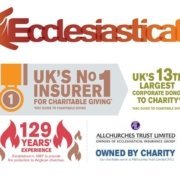
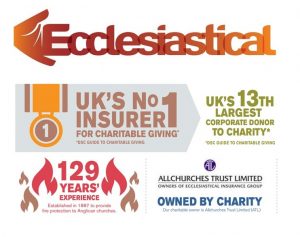 We like to be upfront, which is why we’re clear about who underwrites our Holiday Home Insurance policy. We’ve worked with Ecclesiastical Insurance for over 25 years. We’re proud to have a great professional connection with one of the most ethical and trusted providers in the business.
We like to be upfront, which is why we’re clear about who underwrites our Holiday Home Insurance policy. We’ve worked with Ecclesiastical Insurance for over 25 years. We’re proud to have a great professional connection with one of the most ethical and trusted providers in the business.
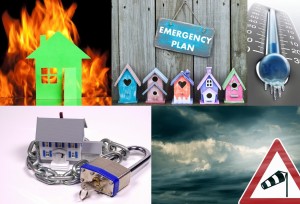 Emergency Planning – what would you do if something went wrong? We set out some handy tips for preparing a holiday let emergency plan.
Emergency Planning – what would you do if something went wrong? We set out some handy tips for preparing a holiday let emergency plan.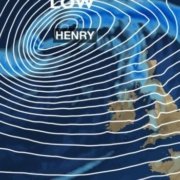
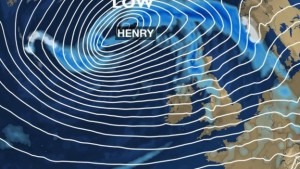 It’s turning into a very British winter; rain has battered the country in recent weeks with an estimated £1.3 billion of storm damage and flood damage already caused to domestic properties and businesses.
It’s turning into a very British winter; rain has battered the country in recent weeks with an estimated £1.3 billion of storm damage and flood damage already caused to domestic properties and businesses.